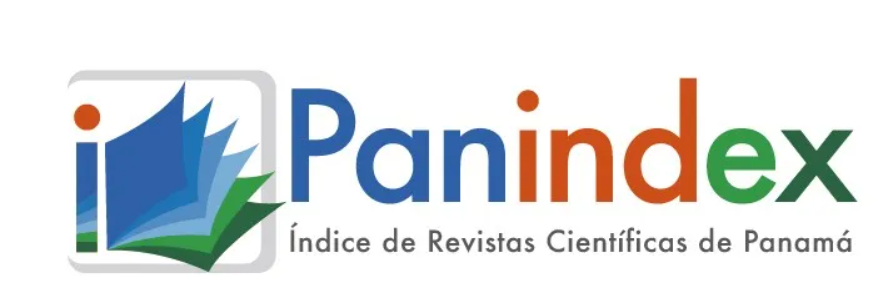Manuscripts sent to SALUTA Magazine must be original and unpublished and must not be simultaneously in the process of publication in other magazines, compilations or any other means of publication. The content of the publications and the links suggested in them are the sole responsibility of the authors and not of the METROPOLITAN UNIVERSITY OF EDUCATION, SCIENCE AND TECHNOLOGY
(UMECIT) or the magazine SALUTA. They are protected by international copyright laws as well as the logos of UMECIT AND SALUTA MAGAZINE, hence their reproduction is totally prohibited. The copyright will belong to the UMECIT.
Under a Creative Commons Attribution License authors may share work with acknowledgment of authorship of the work and initial publication in this journal.



Abstract
The main purpose of this research was to describe the relationship between the emotions and eating behavior of 56 undergraduate students. Method: from a qualitative approach with descriptive scope, with a convenience sampling of 56 students; through the application of Garaulet's (2012) emotional eating questionnaire, which classifies individuals based on the relationship between food intake and emotions, and the Trait Meta-Mood Scale- questionnaire (TMMS-24), a self-reported scale that measures perceived emotional intelligence. The statistical analysis was carried out using the SSPS version 20. Conclusions: The emotional profile during eating was independent of gender, more than half of the students obtained high levels of emotional eaters or very emotional eaters. Thus evidencing that in the population studied there is a revealing percentage with a high level of risk in emotional eating behaviors. Results allow the design of programs and actions to promote and prevent problems associated with intake, in the student population, such as obesity, malnutrition, sedentary lifestyle, as well as the development of symptoms of eating disorders, among others. This work is part of the actions of the State Council of Healthy Eating and Physical Activity to combat overweight and obesity in the state of Veracruz. CEASAF.
References
Bascuas, M. (2018). Especialistas en Salud Mental. Obtenido de Hambre fisiológica y hambre emocional ¿Cómo se diferencian?: Recuperado de: https://itasaludmental.com/blog/link/67
Bersh, S. (2006). La obesidad: aspectos psicológicos y conductuales. Revista Colombiana de Psiquiatría, [en línea] 35, no. 4. (Consultado el 8 septiembre del 2017) Disponible en: http://www.redalyc.org/pdf/806/80635407.pdf
Clerget, S. (2011). Sobrepeso Emocional. México: Urano.
Dávila Torre, González Izquierdo, Barrera Cruz (2015, septiembre) Panorama de la obesidad en México. Revista Médica. [en línea], no. 53. (Consultado el 22 de mayo del 2017): http://www.medigraphic.com/pdfs/imss/im-2015/im152t.pdf
Delgado J., y Guillen R. (2016. abril-junio) Como, luego existo. Revisión de las emociones de enojo y tristeza y el índice de masa corporal. Recuperado de: http://condor.zaragoza.unam.mx/portal/wp-content/Portal2015/publicaciones/boletines/psicobesidad/Psic-obesidad_6-22.pdf
Encuesta Estatal de Salud y Nutrición (ENSANUT, 2018) https://ensanut.insp.mx/encuestas/ensanut2018/doctos/informes/Resultado_Entidad_Veracruz.pdf
Garaulet, M., Canteras, M., Morales, E., López-Guimera, G., Sánchez-Carracedo, D., & Corbalán-Tutau, M. D.. (2012). Validation of a questionnaire on emotional eating for use in cases of obesity: the Emotional Eater Questionnaire (EEQ). Nutrición Hospitalaria, 27(2), 645-651. Recuperado en 27 de agosto de 2024, de http://scielo.isciii.es/scielo.php?script=sci_arttext&pid=S0212-16112012000200043&lng=es&tlng=en.
González, R., Custodio, J. & Abal, F. (2020). Propiedades psicométricas del Trait Meta-Mood Scale-24 en estudiantes universitarios argentinos. Psicogente 23(44), 1-26. https://doi.org/10.17081/psico.23.44.3469).
Hernández, R., Fernández, C. & Baptista, L. (2008). Metodología de la investigación. México: Mc Graw Hill.
Kerlinger, F. N. y Lee, H. B. (2001). Investigación del comportamiento: métodos de investigación en las ciencias sociales (4a ed.). Ciudad de México: McGraw-Hill.
Pajuelo Ramírez, Jaime, Torres Aparcana, Lizardo, Agüero Zamora, Rosa, & Bernui Leo, Ivonne. (2019). El sobrepeso, la obesidad y la obesidad abdominal en la población adulta del Perú. Anales de la Facultad de Medicina, 80(1), 21-27. Recuperado https://dx.doi.org/10.15381/anales.v80i1.15863
Palomino-Pérez, Ana María. (2020). Rol de la emoción en la conducta alimentaria. Revista chilena de nutrición, 47(2), 286-291. https://dx.doi.org/10.4067/S0717-75182020000200286
Reyes Diaz R., Blasco López G., Baizabal Sánchez G., Martínez Juárez L., (2024) Influencia emocional sobre la conducta alimentaria y su relación con el aumento de peso durante la pandemia COVID-19. Revista de Investigación en Ciencias de la Salud . Vol 19 No.1 abril 2024. https://www.imbiomed.com.mx/articulo.php?id=118813
Sánchez Benito, J. L., & Pontes Torrado, Y.. (2012). Influencia de las emociones en la ingesta y control de peso. Nutrición Hospitalaria, 27(6), 2148-2150. https://dx.doi.org/10.3305/nh.2012.27.6.6061
Santos Morocho (2022) Psicopatología de la imagen corporal. CID - Centro de Investigación y Desarrollo. Ciencia latina. chrome-extension://efaidnbmnnnibpcajpcglclefindmkaj/https://biblioteca.ciencialatina.org/wp-content/uploads/2023/05/Psicopatologia-de-la-imagen-corporal.pdf
Salovey, P., Mayer, J. D., Goldman, S. L., Turvey, C., & Palfai, T. P. (1995). Emotional attention, clarity, and repair: Exploring emotional intelligence using the Trait Meta-Mood Scale. In J. W. Pennebaker (Ed.), Emotion, disclosure, & health (pp. 125–154). American Psychological Association. https://doi.org/10.1037/10182-006
Torresani M.E. , Garrido M. , Mosna SainzaY. , Pedernera A. , Simonet L. E., (2018) . Estudio comparativo por género sobre las preferencias gustativas y el perfil emocional durante la ingesta de estudiantes universitarios. Revista Actualización en Nutrición Vol. 19 Nº 4 Octubre-Diciembre de 2018: 104-112 ISSN 1667-8052 (impresa) ISSN 2250-7183 (en línea). https://docs.bvsalud.org/biblioref/2019/02/970200/rsan_19_4_104.pdf
Zamorano G. A. (2009) Imagen Corporal en adolescentes con obesidad evaluada a través del Dibujo de la Figura Humana y la Escala de Evaluación de Insatisfacción Corporal (EEICA). (Tesis de Licenciatura en Psicología. Universidad Autónoma de Santiago de Chile). Disponible en: http://repositorio.uchile.cl/tesis/uchile/2009/cs-zamorano_a/pdfAmont/cs-zamorano_a.pdf
Downloads
Publication Facts
Reviewer profiles N/A
Author statements
- Academic society
- Universidad Metropolitana de Educación, Ciencia y Tecnología
- Publisher
- Universidad Metropolitana de Educación, Ciencia y Tecnología



















